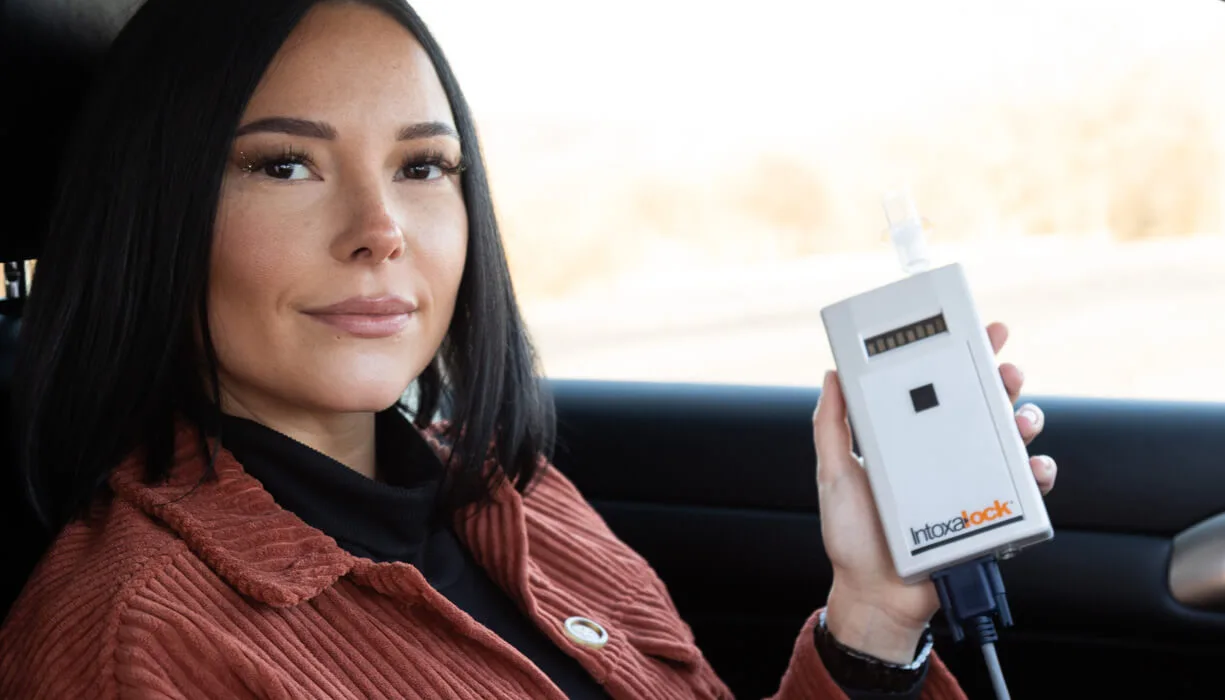Explaining Your IID to Your Kids: A Practical Guide for Intoxalock Customers

As a parent, explaining sensitive topics to your children can be uncomfortable, especially when it comes to something like having an Ignition Interlock Device (IID) in your vehicle. At Intoxalock, we understand that having an IID can be a part of your journey towards responsibility and safety after a DUI or similar incident.
That’s why we teamed up with Brian T. Davis, a Licensed Independent Social Worker and a Substance Abuse Professional to prepare this brief guide on how to explain why you have an IID to your children.
Together, we'll walk you through how to have this conversation with your kids in a way that is honest, age-appropriate, and reinforces the importance of making safe choices.
Why Talk About It?
Before you start the conversation, it’s important to know why it can be a good idea to talk to your kids about your IID. Kids notice things, like seeing the device in your car or hearing about it from others. By talking about it openly, you can:
- Show Responsibility: When you’re open with your kids, you show them it’s appropriate to take responsibility for mistakes or problems. This can help them grow into responsible adults who know how to handle tough situations.
- Build Trust: Being honest with your kids builds trust. It makes them more likely to talk to you when they have problems or questions.
- Teach Them: This is a chance to teach your kids about the dangers of drunk driving and how it can affect people and families. It’s also a good time to talk about how to act around law enforcement.
- Focus on Safety: Talk about why it’s important to make safe choices, especially when it comes to alcohol and driving. Help them learn to make smart decisions, like not getting into a car with someone who’s been drinking.
Keep it Simple But Meaningful
For younger kids (ages 4-10), keep it simple. Use words they understand and stick to the basics. For example:
- "Mom/Dad has a special device in the car to make sure they are always safe when they drive."
- "It's like a reminder to always make good choices and not do things that can hurt us or others."
Just remember that even young children may follow up their first question with a much more challenging one.
Be Honest
For older kids (ages 11-18), you can share more details. Be honest about your mistake and the consequences, and emphasize that you’re working to make better choices. For example:
- "I made a mistake by driving after drinking, which is dangerous and against the law."
- "The device helps show that I’m making better choices now and keeping everyone safe."
If you’re dealing with more than just a mistake, like struggling with alcohol, it might be helpful to talk to a counselor or evaluator about how to explain it to your child.
Though this might be difficult, kids can often tell when there is a problem, and talking with them about other steps you are taking, in addition to the IID, can help them feel more assured that the parent they love is getting help and is going to be ok. This helps create a secure home environment.

Answer Questions
Be ready for questions. Encourage your kids to ask anything they want and answer truthfully and calmly. If a question is hard to answer, it’s okay to say you need some time to think about it and talk later.
This is also a way to show them that you are open to an ongoing conversation rather than an open and closed discussion which might leave them feeling unsure or insecure.
Reinforce Positive Behavior
Finally, Use the conversation as a chance to talk about other ways you prioritize safety, like always wearing a seatbelt and never using your phone while driving.
By having an open and honest conversation about your IID with your children, you can turn a potentially difficult topic into a valuable teaching moment. Everyone makes mistakes, but it's how we learn from them and take responsibility that truly matters. Your kids will probably appreciate your honesty and openness, even if it’s hard for you at first.
For more assistance visit:
- New Directions Assessments: https://ndassessments.com/
- Directions Counseling & Coaching: https://www.directionscounseling.com/



